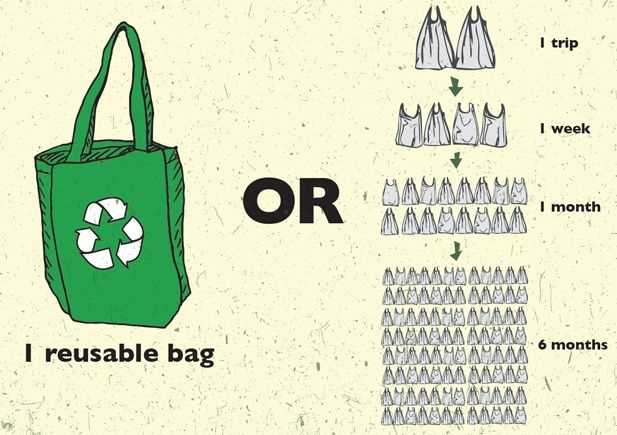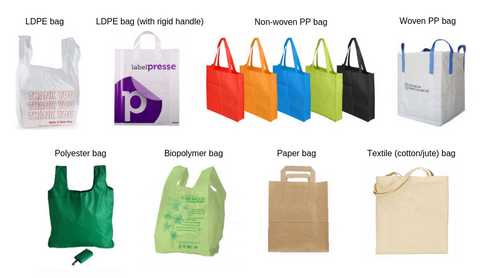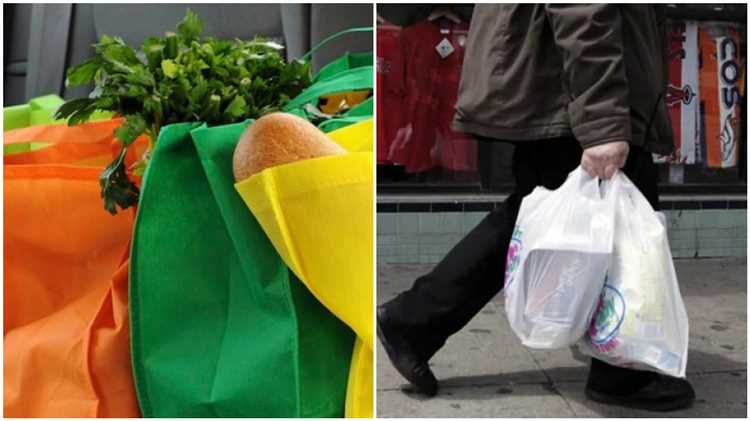
In recent years, there has been a growing concern about the environmental impact of plastic bags. With their widespread use and disposal, plastic bags have become a significant source of pollution, causing harm to marine life and contributing to global warming. As a result, many individuals, businesses, and governments have started to advocate for the use of cloth bags as a more sustainable alternative. But are cloth bags really better than plastic bags?
One of the main arguments in favor of cloth bags is their reusability. Unlike plastic bags, which are typically used only once before being thrown away, cloth bags can be used multiple times. This not only reduces the demand for new bags but also decreases the amount of waste generated. Additionally, cloth bags are generally more durable than plastic bags, meaning they can withstand heavy loads and last for a longer period of time.
Another advantage of cloth bags is their biodegradability. When properly disposed of, cloth bags break down naturally and do not contribute to landfills. In contrast, plastic bags can take hundreds of years to decompose, during which time they release harmful toxins into the environment. By choosing cloth bags over plastic bags, individuals can help minimize the environmental damage caused by waste disposal.
However, it is worth considering that the production of cloth bags also comes with its own set of environmental issues. The production of cotton, one of the most commonly used materials for cloth bags, requires large amounts of water and pesticides, which can have detrimental effects on ecosystems and human health. To mitigate this, some manufacturers have started producing cloth bags from sustainable materials, such as organic cotton or recycled fabrics. These alternatives help reduce the environmental impact of cloth bag production.
In conclusion, while cloth bags have their own set of environmental advantages, it is important to weigh them against the potential drawbacks. By choosing cloth bags over plastic bags, individuals can contribute to reducing plastic pollution and promoting sustainable practices. However, it is crucial to consider the entire life cycle of cloth bags, including their production and disposal, in order to make an informed decision about their environmental impact.
- Environmental Impact of Plastic Bags
- Advantages of Using Cloth Bags
- 1. Environmentally friendly
- 2. Durability
- 3. Versatility
- 4. Cost-effective
- 5. Fashionable
- Disadvantages of Using Plastic Bags
- Benefits of Choosing Cloth Bags
- The Role of Individuals in Reducing Plastic Bag Usage
- Q&A
- What are the advantages of using cloth bags instead of plastic bags?
- Are cloth bags more expensive than plastic bags?
- Aren’t plastic bags more convenient to carry around?
- How do cloth bags help in reducing plastic waste?
Environmental Impact of Plastic Bags
Plastic bags are one of the most significant contributors to environmental pollution. They are made from non-renewable resources, such as petroleum, and their production process emits harmful greenhouse gases. Once discarded, plastic bags can take hundreds of years to decompose.
One of the biggest environmental issues associated with plastic bags is their impact on marine life. Marine animals often mistake plastic bags for food and end up ingesting them. This can lead to serious health problems and even death. Plastic bags also pose a threat to birds, as they can become entangled in them and suffocate.
In addition to the harm they cause to animals, plastic bags also have a negative impact on ecosystems. They can block drainage systems and contribute to flooding in urban areas. In natural environments, they can disrupt the growth and survival of plants and other organisms.
The production of plastic bags requires a significant amount of energy and resources, contributing to carbon emissions and climate change. Furthermore, the transportation of plastic bags from manufacturing facilities to stores also adds to their overall environmental footprint.
Although plastic bags can be recycled, the reality is that a large percentage of them end up in landfills or as litter in the environment. Many countries and cities have implemented bans or restrictions on the use of plastic bags to address these environmental concerns.
Considering the long-lasting negative impact of plastic bags on the environment, it is crucial to find sustainable alternatives. Cloth bags, for example, can be reused many times and have a much lower environmental impact. By choosing cloth bags over plastic bags, we can help reduce pollution, protect wildlife, and preserve natural ecosystems.
Advantages of Using Cloth Bags
When it comes to choosing between cloth bags and plastic bags, there are several advantages to using cloth bags that make them a better choice for both the environment and our daily lives.
1. Environmentally friendly

Cloth bags are a more sustainable option compared to plastic bags. Plastic bags have a significant impact on the environment, as they are non-biodegradable and can take hundreds of years to decompose. In contrast, cloth bags are reusable and can significantly reduce the amount of waste that ends up in landfills and oceans.
2. Durability
Cloth bags are much more durable than plastic bags, which tend to tear and break easily. This makes cloth bags a reliable choice for carrying heavy items and shopping. Additionally, most cloth bags are machine washable, allowing them to be easily cleaned and reused multiple times, further increasing their lifespan.
3. Versatility
Cloth bags come in a variety of sizes, shapes, and designs, making them versatile for various purposes. Whether you need a small bag for carrying your lunch or a larger bag for groceries, cloth bags can accommodate your needs. They are also ideal for carrying books, clothes, and other everyday items, making them a practical choice for daily use.
4. Cost-effective
While cloth bags may have a higher upfront cost compared to plastic bags, they are a cost-effective choice in the long run. Since cloth bags are reusable, you can save money by not having to purchase plastic bags every time you go shopping. Moreover, some stores offer discounts or incentives for customers who bring their own bags, further reducing the cost.
5. Fashionable
Cloth bags have become a fashion statement, with various designs and patterns available to suit different styles and preferences. Using a cloth bag not only helps the environment but also allows you to express your personality through fashion.
Overall, the advantages of using cloth bags over plastic bags make them a clear winner in terms of sustainability, practicality, and style. By making a simple switch to cloth bags, we can all contribute to reducing plastic waste and protecting our planet.
Disadvantages of Using Plastic Bags

Plastic bags have become incredibly popular and are used by millions of people worldwide. However, their convenience comes at a significant cost to the environment. Here are some of the disadvantages of using plastic bags:
| 1. | Environmental Impact: | Plastic bags are non-biodegradable, which means they do not break down naturally and can persist in the environment for hundreds of years. This leads to littering and can harm wildlife. |
| 2. | Waste Generation: | The production of plastic bags requires the use of fossil fuels and energy-intensive processes. As a result, large amounts of waste and greenhouse gas emissions are generated. |
| 3. | Single-use Culture: | Plastic bags are often used once and then discarded. This promotes a culture of disposability, where resources are wasted and landfills are filled with unnecessary plastic waste. |
| 4. | Microplastic Pollution: | Over time, plastic bags break down into smaller pieces known as microplastics. These microplastics can contaminate soil, water, and even the food chain, posing a threat to human and animal health. |
| 5. | Threat to Marine Life: | Plastic bags often end up in aquatic environments, where they can be mistaken for food by marine animals. Ingesting or getting entangled in plastic bags can cause severe injuries or death to marine life. |
Considering these disadvantages, it is clear that plastic bags have a detrimental impact on the environment and society as a whole. Transitioning to reusable cloth bags is an effective way to reduce the negative effects associated with plastic bags.
Benefits of Choosing Cloth Bags
When it comes to the environment, choosing cloth bags over plastic bags can have many benefits. Here are some reasons why you should consider using cloth bags for your shopping needs:
1. Eco-Friendly: Cloth bags are reusable and can significantly reduce the amount of plastic waste in our environment. By choosing cloth bags, you are actively contributing to the reduction of plastic pollution.
2. Durable: Cloth bags are made of sturdy materials such as cotton, canvas, or jute, which makes them durable and long-lasting. They can withstand heavy loads and can be used for multiple purposes besides shopping.
3. Cost-effective: While the upfront cost of cloth bags might be slightly higher than plastic bags, they are a one-time investment. You can reuse cloth bags multiple times, which can save you money in the long run as you won’t have to keep buying new plastic bags for each shopping trip.
4. Versatile: Cloth bags come in various shapes, sizes, and designs, making them versatile for different purposes. You can find cloth bags with compartments, zippers, or handles that make them suitable for various uses like grocery shopping, carrying books, or even as a stylish accessory.
5. Comfortable to Carry: Unlike plastic bags, cloth bags have comfortable handles that don’t dig into your hands. They distribute the weight of the contents evenly, making them easier and more comfortable to carry, especially for longer distances.
In conclusion, choosing cloth bags over plastic bags offers numerous benefits for both the environment and the user. By making the switch to cloth bags, you can reduce plastic waste and make a positive impact on our world.
The Role of Individuals in Reducing Plastic Bag Usage
Plastic bag pollution is a significant environmental issue, and individuals play a crucial role in reducing its usage. While governments and businesses have a responsibility to implement effective policies and alternatives, individual actions are equally important in driving change.
One of the most practical ways individuals can contribute is by using cloth bags instead of plastic bags. By opting for reusable bags, individuals can significantly reduce their reliance on single-use plastic bags. Cloth bags are not only more durable but also environmentally friendly. They can be used multiple times and are less likely to end up in landfills and oceans, where they pose a threat to wildlife.
Moreover, individuals can promote awareness and education about the importance of switching to cloth bags. By sharing information about the harmful effects of plastic bags and the benefits of using cloth bags, people can inspire others to make more sustainable choices. This can be done through social media posts, conversations with friends and family, or participating in community events focused on reducing plastic bag usage.
Additionally, individuals can support local businesses that offer alternatives to plastic bags. Many stores now provide recyclable paper bags or encourage customers to bring their own bags. By consciously choosing to shop at these establishments, individuals can support eco-friendly practices and encourage other businesses to follow suit.
Lastly, individuals can actively participate in cleanup efforts in their communities. Participating in beach or river cleanups can help remove plastic bags that have already been discarded improperly and prevent them from causing further harm to the environment. These cleanup initiatives also raise awareness about the impact of plastic bag pollution and the importance of responsible waste disposal.
In conclusion, individuals play a crucial role in reducing plastic bag usage. By switching to cloth bags, promoting awareness, supporting businesses with eco-friendly practices, and participating in cleanup efforts, individuals can make a significant impact on reducing plastic bag pollution and protecting the environment.
Q&A
What are the advantages of using cloth bags instead of plastic bags?
Using cloth bags instead of plastic bags has several advantages. First, cloth bags are reusable, which means they can be used multiple times before wearing out. This helps to reduce waste and minimize the environmental impact. Second, cloth bags are much more durable than plastic bags and can carry heavier items without tearing. Lastly, cloth bags are made of natural materials such as cotton or canvas, which are biodegradable and do not harm the environment when they eventually break down.
Are cloth bags more expensive than plastic bags?
Initially, cloth bags may be more expensive than plastic bags. However, when you take into account their reusable nature, cloth bags are actually more cost-effective in the long run. Instead of constantly buying new plastic bags, you can use the same cloth bags repeatedly, saving money in the process. Additionally, many stores offer discounts or incentives for using reusable bags, further reducing the cost. So, while the upfront cost may be higher, cloth bags are a more economical choice in the long term.
Aren’t plastic bags more convenient to carry around?
While plastic bags may be more lightweight and convenient to carry around, cloth bags provide their own set of benefits. Cloth bags are generally larger and more spacious, allowing you to carry a larger amount of items in one bag. Additionally, cloth bags have handles that are more comfortable to hold, compared to the thin and often sharp plastic bag handles. Moreover, many cloth bags are foldable or collapsible, making them easy to store and carry with you wherever you go.
How do cloth bags help in reducing plastic waste?
Cloth bags play a crucial role in reducing plastic waste. Every time you use a cloth bag, you are avoiding the use of a plastic bag that may end up in a landfill or polluting our oceans. By choosing to use cloth bags, you are actively contributing to the reduction of plastic waste and helping to preserve our environment. In addition, cloth bags are made from natural materials, which means they can biodegrade over time and do not contribute to long-term pollution like plastic bags do.